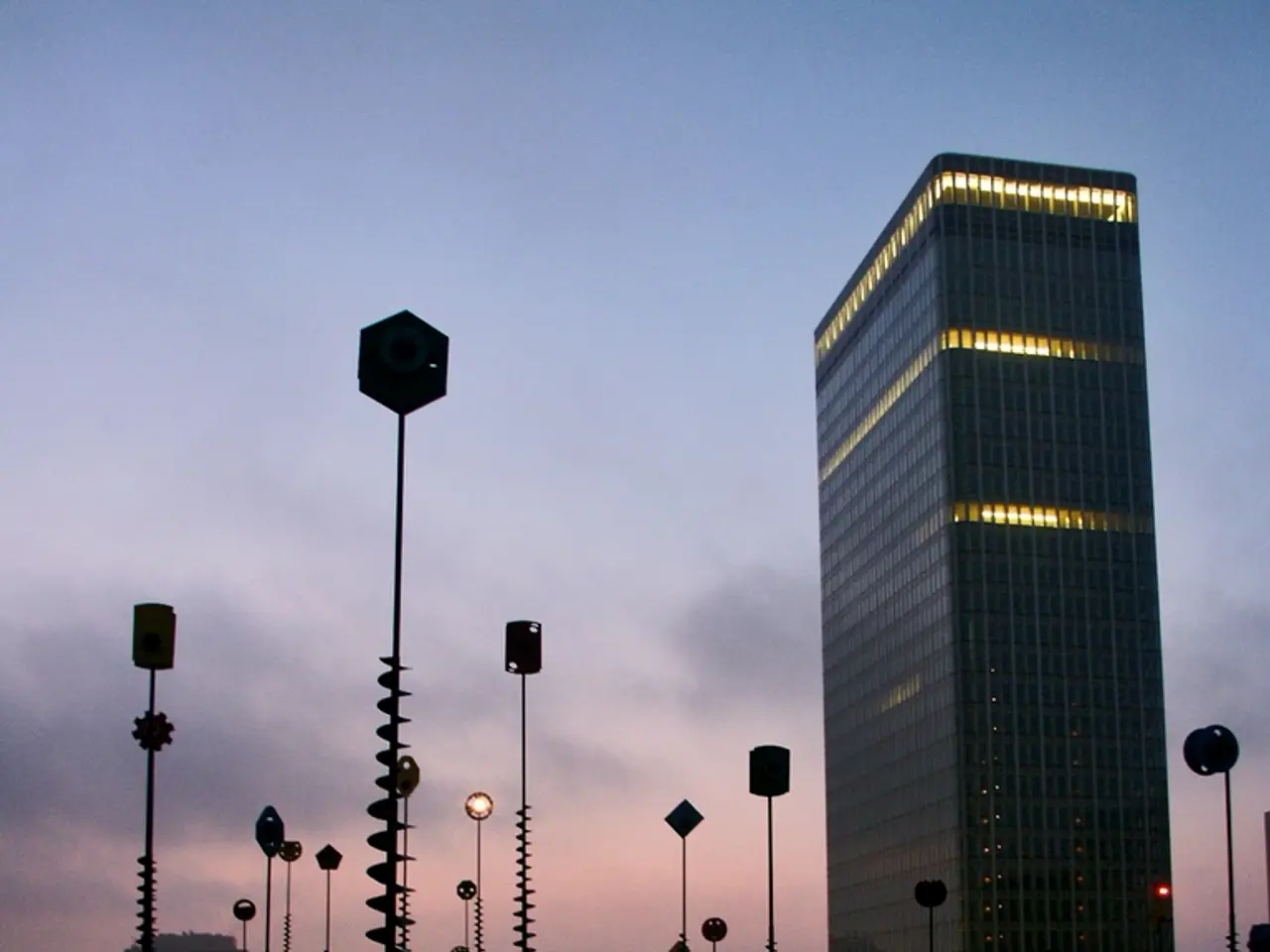Far-Right Alliance Persists - Dissecting the Sham Unity Amongst Extreme Capitalists
In Europe, the rise of far-right populist parties has been a significant political development, particularly in Poland and Turkey, where national capitalists have felt squeezed by neoliberal globalisation. These parties, acting on behalf of these disgruntled capitalists, have made substantial electoral gains in countries like Austria, Germany, France, and Italy.
While some far-right parties, such as the German Alternative für Deutschland (AfD), advocate for unbridled free market capitalism, others like the Freedom Party of Austria (FPÖ) or the Sweden Democrats support "welfare chauvinism" - welfare for the native population alone. The economic policies of these parties vary significantly by country, influenced by local socioeconomic conditions, historical legacies, and political contexts.
In France, the National Rally (RN) emphasises protectionism and social welfare for "the common people," advocating against globalisation and austerity measures seen as harming native workers. Italy’s far-right under Giorgia Meloni (Brothers of Italy) has a mix of national conservatism and euroskepticism, pressuring for policies against EU economic constraints, with emphasis on sovereignty and opposition to immigration costs.
Eastern European countries like Poland and Hungary have right-wing nationalist parties that blend economic conservatism with social conservatism, promoting state-led economic approaches while resisting liberal democratic norms. These parties often advocate for government intervention to preserve national industries and welfare with strong anti-immigrant rhetoric.
In Germany, AfD’s rise partly reflects responses to economic and democratic dissatisfaction, with voters distrusting traditional elites and opposing EU green policies and migration costs. AfD represents a protest against both immigration and perceived economic mismanagement by centrist parties.
Differences between countries arise from economic structure, social cleavages, degrees of EU integration, and historical factors shaping the far-right discourse. While all share euroskepticism and anti-immigrant stances, their economic policies balance between free market nationalism, welfare chauvinism, and state intervention depending on local electorates and coalition politics.
In Hungary, the governing coalition, led by Viktor Orbán, has had to cater to a wide array of interests, but the prime beneficiaries of this bloc have been certain fractions of the Hungarian business class, particularly the banking and construction sectors. In the UK, the fractions of capital that seem to drive the right-wing populist bloc are profoundly transnational, with particularly strong ties to US capital.
Far-right parties shape the agenda of mainstream parties and the wider public debate even when they are in the opposition. In France, RN MPs have consistently voted against the interests of the "ordinary people" they claim to champion, opposing rent price freezes, free school meals, and tax hikes on incomes higher than 3 million euros.
The current situation presents some important similarities, with the "winners" among capitalists looking for alternative political vehicles like far-right populist parties to push for alternative policies that may benefit them. Far-right parties have strong parliamentary representation in most European countries and are in government in Croatia, Finland, Hungary, Italy, the Netherlands, Serbia, Slovakia, and Switzerland.
Much of the research has dealt with former or current right-wing populist regimes in Central and Eastern Europe, which have largely acted on behalf of domestic capitalist classes marginalized as a result of their countries' integration into the international markets. The economic policymaking enacted by fascist regimes in the past went in the direction of dropping real wages while corporate investment and profits rose exponentially.
Recent research has shown that far-right members of the previous European Parliament (2019-2024) may have some left-wing talking points but largely vote right-wing on socio-economic issues. The class composition of the populist far right may differ from country to country, with parties in Western Europe like Germany’s AfD led by a former Goldman Sachs banker and the owner of a construction company.
In Switzerland, more than half of elected representatives who belonged to the national-conservative Swiss People's Party at the time of the 2015 federal elections that brought the party into power were directors or owners of small and medium enterprises. In Italy, co-founder of Brothers of Italy and current Minister of Defence Guido Crosetto is the former chief lobbyist of the national arms industry, which might explain the Meloni government's staunch support for arming Ukraine despite the Italian right's well-documented ties with Putin’s Russia.
Historically, there is a strong nexus between big business and fascist parties, particularly in Italy and Germany. Far-right parties form a political family brought together more by what they oppose than what they propose, capitalising on economic insecurity, structural economic shifts, and post-growth realities impacting regions left behind by globalisation and technological change. Their core economic appeal is frequently linked to protecting domestic workers, opposing immigration as a competitor for jobs and welfare, euroskepticism concerning EU economic policies, and skepticism toward elite-driven globalization and green policies perceived as economically harmful.
[1] Mudde, C. (2017). The Far Right in Europe: An Overview. Journal of Political Ideologies, 22(3), 251–270. [2] Kaltwasser, C. (2016). Nationalism and the Extreme Right in Contemporary Europe. Cambridge University Press. [3] Goodwin, M. (2016). National Populism: The Revolt Against Liberal Democracy. Harvard University Press. [4] Betz, H. G. (2016). Radical Right-Wing Populism in Western Europe. Oxford University Press. [5] Ignazi, G. (2012). The Radical Right in Western Europe: A Critical Appraisal. Oxford University Press.
- The economic policies of far-right parties in Europe, such as the German Alternative für Deutschland (AfD), the Freedom Party of Austria (FPÖ), the National Rally (RN) in France, and Brothers of Italy in Italy, are influenced by local socioeconomic conditions, historical legacies, and political contexts, veering towards free market nationalism, welfare chauvinism, or state intervention, depending on the electorate and coalition politics.
- Far-right parties in Europe, like the AfD in Germany, the RN in France, and even parties in government like the Swiss People's Party in Switzerland, have been observed to have strong ties with certain sections of the business class, with capitalists looking to these parties as political vehicles to push for policies that may benefit them, often centered on economic insecurity, opposition to immigration, euroskepticism, and skepticism toward elite-driven globalization and green policies.




